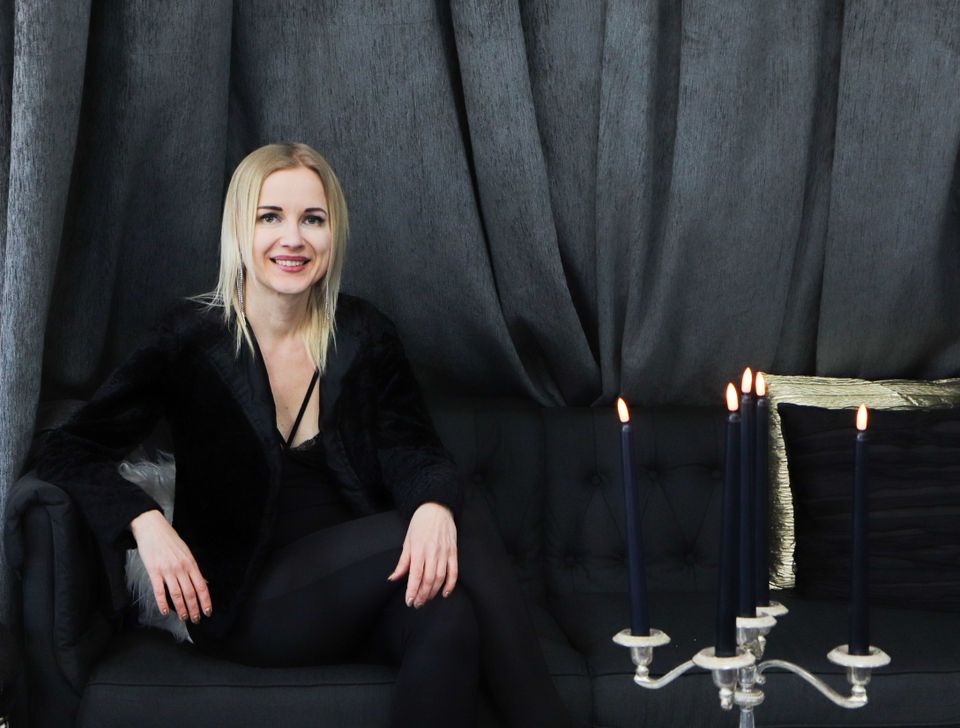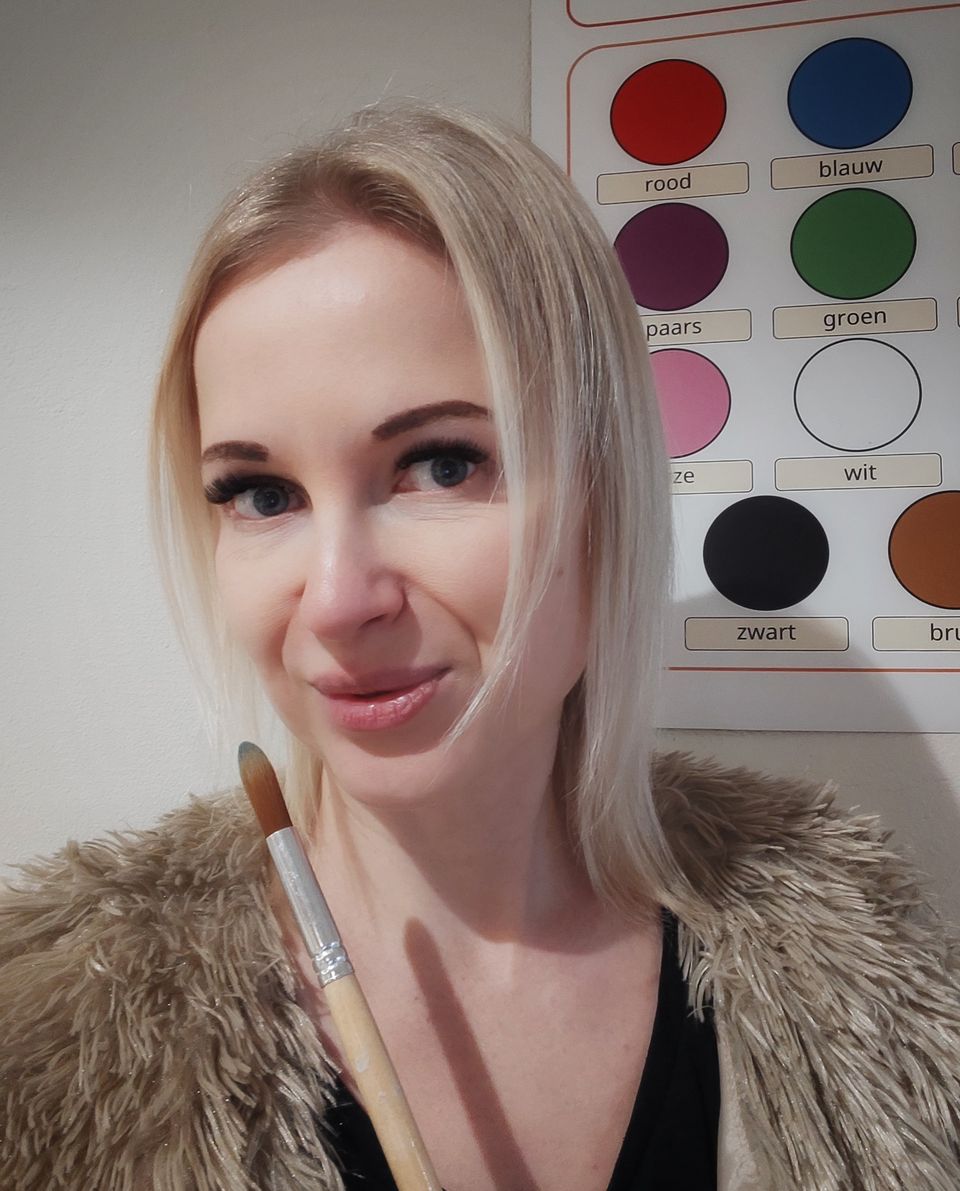Jana's Dutch Language Journey
Learning Dutch is essential for settling in and connecting with life in the Netherlands. Through our Praat Nederlands Met Me campaign, we encourage you to practice speaking Dutch regularly, making it easier to integrate into the local community.
Jana Komaritsa is a multidisciplinary visual artist, musician, art instructor and art therapist. Jana was born in Russia 40 years ago, and has been living in Germany and the USA since 2009. Last year she decided to settle in the Netherlands and open WonderCat, a multifunctional art space, gallery, art school and event venue here in Leiden.
In the span of a year Jana has managed to learn Dutch to a good level, becoming fluent really quickly thanks to her passion for languages… and a lot of commitment! We have asked her to share her language journey with us.

What was your language background before starting learning Dutch?
I know English and German. My mother tongue is Russian. I’ve learnt other languages too, like French, Italian, Swedish, but with lack of practice I pretty much forgot most of them.
Why and when did you start learning Dutch?
I started learning Dutch at the beginning of 2024, once I knew I would be moving to the Netherlands later in the year. I wanted to be prepared. From the beginning, I was convinced that learning Dutch would be essential for my success here - even though I was well aware that many foreigners manage perfectly well with just English, especially in the bigger cities.
Still, I made a conscious decision: learning Dutch wouldn’t just open more doors for me professionally and help my business grow, it would also allow me to connect more deeply with the country, its culture, and its people. Language, for me, is a powerful way to gain insight into a country’s mentality and traditions. By putting real effort into learning Dutch, I also show my respect and appreciation for the Netherlands, which I now consider my new home.
And I just enjoy learning languages as well!
When I arrived in the Netherlands in June last year, I set a clear goal for myself: to learn Dutch within around six months to the level that I would be able to lead my painting classes in Dutch by then. And I achieved this goal and conducted my first painting class in Dutch at the end of the year!
What are your favourite accomplishments in this journey?
It was rewarding to realize how quickly I started understanding more and more of what the teachers were saying during the courses, as well as what others were saying to me in Dutch in general. I really enjoyed that progress. One of my proudest achievements was being able to conduct an entire painting class in Dutch, which I first did in Dutch Language Cafe in the Hague, after only 6 months of intensive learning. Another highlight was doing a live podcast interview in Dutch with Stichting Werk en Onderneming Leiden - completely unprepared, as I had assumed it would be in English!

What have been your main obstacles?
One big challenge is that people often switch to English when they notice your Dutch isn’t perfect. In those moments, you sometimes have to be a bit assertive to keep the conversation in Dutch. Of course, it depends on the situation and your skill level, if a real conversation isn’t yet possible, it doesn’t make sense to force it. But for simple, everyday interactions like ordering food or shopping, I found it absolutely manageable to stick with Dutch. That’s where I started. Step by step, I worked my way up to having more complex conversations.
Another personal challenge has been the interference between Dutch and German. Since I already speak fluent German and the two languages are quite similar, I often found myself accidentally using German words when trying to speak Dutch. That still happens, although less than before. I now have the opposite problem too - Dutch words sneak into my German! I’m working on creating more mental structure so I can clearly separate the two languages in my mind and switch between them smoothly, without too much confusion. But for now, it can still feel a bit chaotic, especially on days when I have to use both languages.
What is your favourite thing about learning Dutch?
I really enjoy exploring the differences and similarities between Dutch and the languages I know well - English and German. It fascinates me how these languages intertwine, how they have developed over time, and the logic that underlies their structure. I’m also intrigued by the variety of dialects. I often spend time in Antwerp in Belgium, and I’ve noticed how different the language sounds there compared to what I’m used to.
What is your favourite method of learning?
I would say that what really accelerated my learning was communicating on social media. I found language cafés and networking events, where locals and foreigners mix, also helpful for practising conversation. I also made a habit of picking up words and phrases I saw on the streets, in signs, advertisements, or everyday interactions.
Whenever I had conversations, even very simple ones like ordering food, and realized I was missing a word or phrase, I would quickly look it up using Google Translate and use it immediately. I’d take a screenshot and save it on my phone, which I revisited regularly to review and memorize. I also organized important vocabulary by topic in a notebook, focusing on the most commonly needed phrases. This method was very helpful and had a significant impact on my progress.
Since speaking is usually the most challenging skill in language learning, I put most of my effort into it. Just like when I was learning German, my main strategy was to focus on the kinds of things I actually talk about in daily life. When you pay attention, you’ll notice that we tend to repeat the same stories, expressions, and types of conversations. Our everyday vocabulary is actually not very big. That’s why it’s so useful to observe what you regularly talk about in your native language, or in a language you're fluent in, like English, and translate that into Dutch. Focus on learning the vocabulary and expressions that are directly relevant to your life. There’s no need to start with rare or overly complex words, they’ll come naturally over time. To be better prepared, it also helps to anticipate the kinds of questions people might ask you, so you can practice both speaking and listening more effectively.
How learning Dutch has changed your everyday life in the Netherlands?
Learning Dutch has made a significant impact on my life in the Netherlands. It opened more doors for me and made my overall experience here much more enriching and fulfilling. When someone speaks to me in Dutch and I’m able to respond and hold a conversation, it feels incredibly rewarding. Without the language, my experience would have been far more limited.
Understanding Dutch has also given me deeper insight into the local mentality and culture. It’s helped me integrate more naturally and feel more connected to the society around me. From a business perspective, it’s been a major advantage, speaking the local language brings more respect and creates more opportunities.
If you could talk with yourself at the start of this journey, what would you say?
I would say exactly what I kept telling myself: don’t give up. Learning a new language is challenging, but it’s absolutely worth it. The beginning is always the hardest, but with every step, it gets easier. And in the end, the sense of fulfilment that comes from being able to speak the local language is truly incredible.
Do you have a fun fact related to your language journey?
I think some of the most fun moments were when, especially at the beginning, I was desperately throwing German words into my Dutch conversations whenever I couldn’t think of the right Dutch word but it often worked!
Bonus question: Favourite Dutch word?
I like the ending “tje” added to almost everything. I also find words like “maar” and “hoor” and their usage fun. Some complicated words like “overweldigend” or “teleurgesteld” sound beautiful… Lekker? Gezellig? Of course!